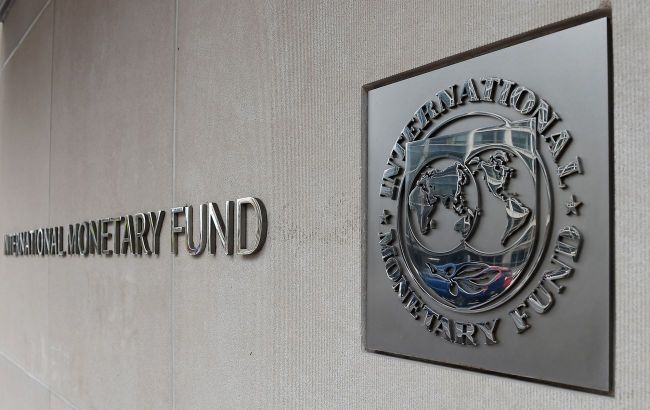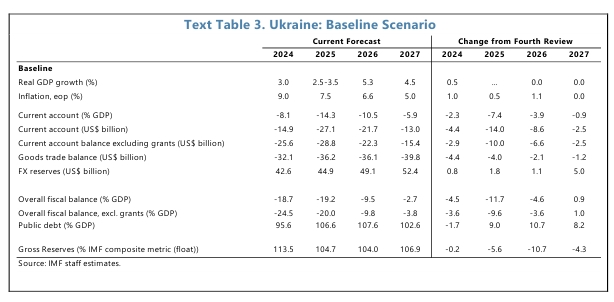IMF updates forecast on when war in Ukraine to end
 Photo: The IMF predicts the end of the war in a year (Getty Images)
Photo: The IMF predicts the end of the war in a year (Getty Images)
Experts from the International Monetary Fund have revised the forecast for the duration of the war between Russia and Ukraine. The timeline for the end of intense hostilities has been pushed back by one year, according to the memorandum from the IMF.
"In the updated baseline scenario, the war would wind down in the last quarter of 2025, exerting a large drag, but Ukraine would be able to sustain measured growth," the document states.
In June, the IMF projected the end of the war in its baseline scenario for late 2024, while the conclusion of hostilities by the end of 2025 was included in the fund's negative forecast.
Overall, the baseline scenario suggests that the impact of the war will be concentrated in areas already experiencing reduced economic activity due to security concerns.
While growth will remain positive, driven by recovery, a prolonged conflict is expected to negatively affect economic indicators due to increased uncertainty, labor shortages, import pressures related to defense and repairs, and demographic dynamics, according to the memorandum.

Baseline scenario for 2024
Real GDP growth in 2024 is projected at 3%. Growth is likely to moderate in the third quarter, as early harvests and export resilience offset the negative impact of energy shortages. The economy is expected to slow further in the fourth quarter due to increasing energy deficits, driven by higher demand during the heating season, according to the IMF.
The IMF estimates the winter energy deficit at 3-4 GW, which "consistent with estimates of other stakeholders," while negative risks prevail due to missile attacks and seasonal factors, as stated in the memorandum.
Inflation will continue to rise to 9% year-on-year by December, reflecting a sharp increase in producer prices (primarily driven by energy) and labor costs.
In the external sector, higher energy and defense product import needs, along with a weaker harvest, will largely offset improvements from the restructuring of eurobonds and push the current account deficit to $14.9 billion (8.1%). However, significant external financing will increase gross international reserves to $42.6 billion, according to the forecast.
Baseline scenario for 2025
Real GDP recovery will occur more slowly (2.5-3.5% year-on-year, 2-3 percentage points lower than the previous forecast) due to the prolonged war. Inflation is expected to decrease to 7.5% by year-end due to easing cost pressures. The current account deficit is projected to rise to $27.1 billion (14.3% of GDP) due to persistent import needs, the impact of labor shortages on export production, and a reduction in grants, which will outweigh the favorable effects of stable shipping, private remittances, and debt restructuring.
Despite the deterioration of the current account, some decline in net foreign direct investment and an increase in cash foreign currency outside banks amid uncertainties related to the war, gross reserves are expected to increase to $44.9 billion with the support of external financing, the IMF predicts.
Post-war period
According to the IMF, post-war recovery will be hampered by scars from a prolonged conflict, but the medium-term outlook is based on a strong reform agenda and pathways to EU accession, as well as partial reconstruction.
The more subdued post-war production recovery in the updated baseline forecast reflects a slower return of migrants, leading to a greater long-term population loss.
Overall, the updated baseline forecast anticipates a cumulative loss of real GDP level of 2% by 2027 (and 2.7% by 2033) compared to the June forecast.
"However, potential growth would remain broadly unchanged as investment flows and total factor productivity (driven by decisive reforms, reconstruction efforts and confidence) would dominate the adverse impact of the longer war on the capital stock and the labor force," the forecast states.
It is worth noting that, according to a survey by the Razumkov Center, in September 2024, 83% of respondents believed in Ukraine's victory in the war against Russia.
Among the respondents who believe in victory, 39% think it will happen in 1-2 years, 19.5% believe it will occur by the end of this year, 15% estimate it will take 3 to 5 years, 5% think it will take more than 5 years, and 2% believe victory is "unlikely to happen in my lifetime."

